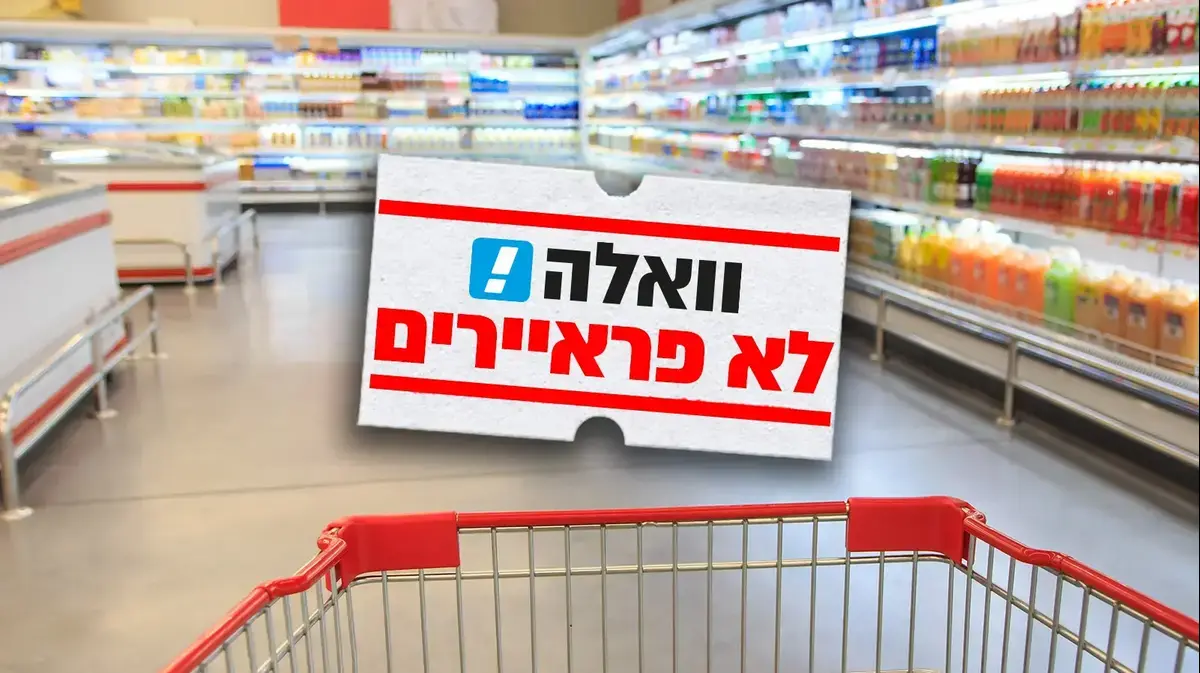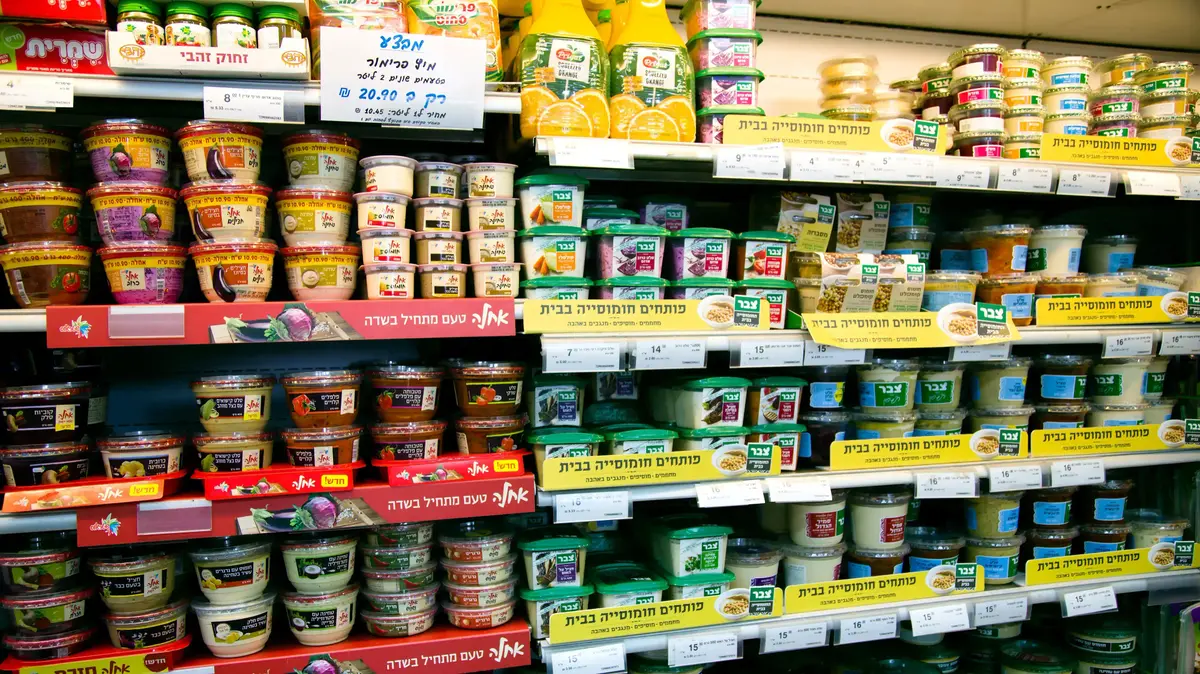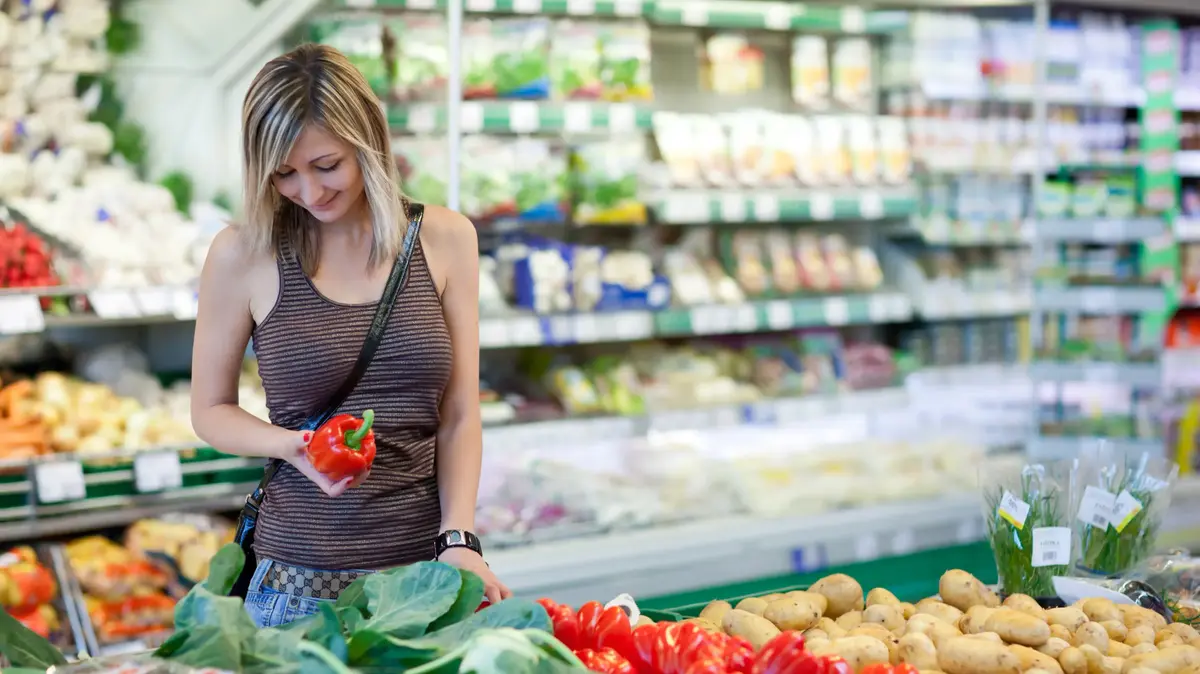consumption
Where is the Passover shopping cheaper, in a supermarket or online?
We examined the six food chains that operate supermarkets and at the same time online sales sites and found that the gap between the cheap chain and the expensive chain in the survey stands at a gap of 24% in online stores.
In the "Kalsi" supermarket, the difference is "only" 11%.
All the details inside
Dr. Hezi Gur Mizrahi
06/04/2022
Wednesday, 06 April 2022, 18:52 Updated: Thursday, 07 April 2022, 11:57
Share on Facebook
Share on WhatsApp
Share on Twitter
Share on Email
Share on general
Comments
Comments
The marketing processes and strategy in which the marketing chains operate are dynamic with alternating promotions, stimulation to increase shopping, customer clubs and more, with everything draining into the money of the year: shopping for Passover.
In supermarkets you can easily identify points of attraction of significant items in the shopping cart, so for example we can visit the store on Sunday and pay for a kilo of tomatoes NIS 8.90 and on Tuesday pay only NIS 0.90 per kg
. More? Good question.The fact is that we are bombarded with information about "market days", weekly promotions, daily promotions and some chains have even adopted the neighborhood bar method with Happy hour i.e. - promotions for the same time ... but the truth is that knowing where the cheapest basket is an action Complex, especially while we are already in our familiar and regular store, and even if exposed when shopping for a message from a competing chain, the chances of us leaving the cart and crossing the road are nil.
More on Walla!
The Passover product basket survey is already here: In which chain is the cheapest shopping basket?
In collaboration with Rami Levy
What shapes our buying habits?
Will we abandon a favorite supermarket because of a sale with competitors? (Photo: ShutterStock, Doron Shiner)
The War of the Retailers' Survival
Passover is just around the corner and the price competition between the retail food chains changes from hour to hour, the war for the consumer's pocket on Passover is the war of survival of the retail chains, many sacrifice products at a loss to stimulate the consumer to
invest his money rather than the competitor.
A store where he buys regularly and knows the walking route and where each item is located and sometimes also what to call a cashier and jade, and move to another store, this is not a simple process that sometimes seems impossible.
One of the reasons is not necessarily the price, because it turns out that most customers know the status of the store they are purchasing in, but even if it is considered a little more expensive, there are preferences, habits and convenience that do not make it easy for us to change consumption patterns.
That is why there are chains that invest more in the shopping experience, in the quality of the fresh products and even in the method of packaging the meat products than in the price war.
The question is whether we can pay less for the same basket without leaving home, why do we still insist on visiting the traditional shops (meaning "regular" supermarkets), wasting time, parking, packing, loading and carrying Salino on our shoulders instead of relaxing in the living room with the smartphone and a few clicks Button did we do a virtual compilation?
The answer is clear, the
shopping and excitement experience are the main reasons why we prefer traditional shopping over the cold and fast process of online shopping, which may also be accompanied by its own experiences and thrills, but we still want to change routines, rub shoulders, touch products, converse with the pace and Complain why not open another box office ?!
Passover baskets, comparison between the marketing networks (not online) (Photo: Daniel Malakhovsky)
The basket became more expensive
We examined an identical basket consisting of a variety of 80 items that are commonly found in our shopping cart, we conducted a broad overview in order to understand where we should purchase and how to purchase.
Let's take the almost obvious: despite the price competition we still pay much more for the same basket compared to the previous year: the prices of vegetables and fruits jumped by 10% Fresh meat and poultry products jumped by 13.5%, fresh and frozen fish jumped by 16% - all before we touched two The sensitive segments of the holiday, the disposable utensils that have jumped one hundred percent and more, we stand in front of the shelf of disposable utensils and are debating whether we should not buy a porcelain set instead, the sweet drink products have become more expensive by 30%, and although the discourse on disposable utensils Assigned are still part of the holiday basket.
Passover baskets in online shopping (Photo: Daniel Malakhovsky)
Trust issues is the main barrier to online purchasing
In recent weeks we have read and seen investigations that cast doubt on the supply and cooling chain of the products that come to us in online orders.
Sometimes the courier forgets or makes a mistake, sometimes products are missing, too often there is a discrepancy in arrival times and an inability to make a consumer decision for a different product or substitute as we can decide on a tour of the store.
In a sample survey we conducted in June 2021 on consumption preferences, 26% of respondents who tend to make at least 50% of household spending on consumer products online testified that they prefer not to purchase fresh products online and prefer to choose fresh produce traditionally rather than risk transport and storage under inappropriate conditions. , These are some of the reasons we are seeing more and more specialty stores returning to the Israeli landscape in the field of greengrocers and butchers.
What is the gap in the pocket between digital and "tradition"?
We compared the gap paid in those chains between the traditional purchase and the online purchase and were surprised to find that most chains offer a lucrative basket relative to the traditional basket, but not all of them offer a cheaper basket.
In the Rami Levy
chain , the
online basket is 5.50% cheaper than the shopping basket in the store, in
Shufersal
by 4.40%, in the
Victory
basket the basket is 2.30% cheaper and in the chain from
market warehouses, the
basket is 0.40% cheaper.
In contrast, in the
Bitan and Mega wine
chain, you will pay a premium for your convenience, the difference between Mega Market and Mega Online is more than 13%, and in the Bitan Wines chain, you will pay almost five percent more for the online pavilion.
How much will we pay for the same basket when buying on the same network between online and regular?
We set out to find out where to find the most affordable shopping basket for the holiday, from a matzah package to a slice of fresh sheitel.
The gaps we found were not only between networks but also within those networks.
It turns out that it is easy to pay 24% more on the same basket without knowing why our monthly expenses are growing.
Online in front of a "classic" supermarket Find the differences (Photo: Daniel Malakhovsky)
How did we assemble the basket?
The
Passover
basket consists of 80 fresh, frozen
and dry items, with an emphasis on well-known and common brands:
Chest, sheitel and fresh osoboku.
•
Birkaniya
- tomatoes, cucumbers, red onions, potatoes, packaged carrots, red peppers, eggplant, zucchini, lettuce, white cabbage, beets and sweet potatoes.
Fruit for the holiday table Bananas, avocados, oranges, tangerines, passion fruit, apples, lemon, melon and persimmon.
• The
products designed for Passover
- a package of 2.5 kg matzah, puffed flour, soup almonds, brownie cake, Mlawa pastries, waffles, cornflakes, schnitzel from mama chicken, a hot dish and a mixture for making
cake
.
Canned olives and cucumbers, tuna quartet, olive oil, tomato concentrate, instant coffee, green tea, chocolate, mayonnaise, ketchup, sesame seeds, chicken soup, basmati rice, tahini, chickpea spread, frozen beans, bamba pack, chips snack, Bitter chocolate, Nutella spread, Click snack, Spring drink, Bulgarian cheese, soy drink and cream cheese.
And a bottle of dry wine.
•
For home and body care
- toothpaste, shampoo, fabric softener, floor liquid, washing powder, washing gel, degreaser, dishwashing liquid, garbage bags.
The author is the director of the Institute for Retail Research
. The survey will also be published in Maariv's "Business" supplement, Friday, April 8.
Of money
consumption
Compare prices
Tags
Passover
Shopping cart
meat
Fish
vegetables
fruits
Retail chains








